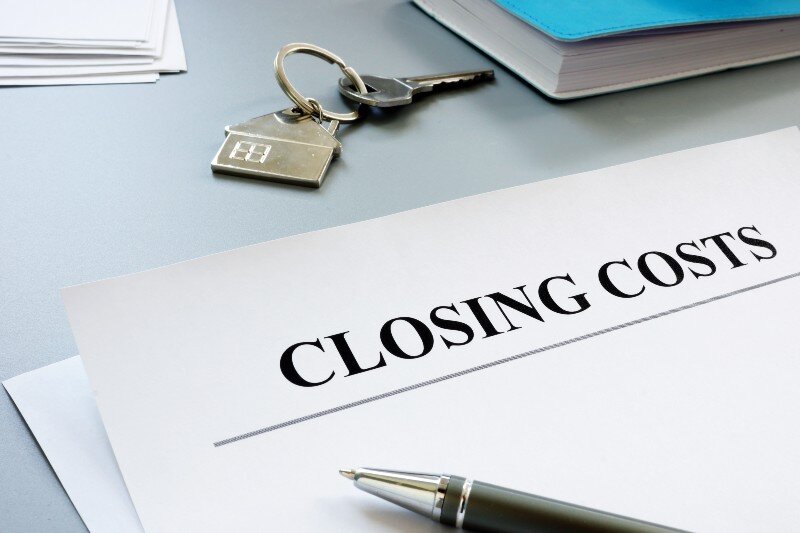
Closing costs are an integral part of how much you can make during a transaction. Homeowners looking to make a profit through their house sale need to understand the average closing costs before putting their house on the market. Knowing the real estate market in Wisconsin, average property taxes, and recording fees are key to being aware of how to successfully list and sell a house.
A knowledgeable realtor can help homebuyers and sellers figure out the confusing statistics when selling or buying a new home, such as the buyer’s closing costs, discount points, and transfer taxes.
How much are average closing costs? Well, that is a complicated answer. Unlike other fees or costs during a real estate transaction, closing costs can fluctuate based on a variety of factors.
Let’s see why closing costs are necessary and how to determine your property’s average closing costs. Forget having to refinance your house—professional agents can help you avoid hefty closing fees and pass home inspection with ease!
What Are Closing Costs and Why Are They Important?
Closing costs are the fees homeowners must pay when they are in the final stages of a transaction for their property. Any last transaction, such as buying a new house, refinancing your mortgage, insurance, paying loan application fees, finding your home loan origination, paying the underwriting fees, and covering other expenses, can influence how much you must pay before you close on a property.
In short, closing costs are the fees and out-of-pocket payments that a homebuyer or house seller will need to make in the last stages of a real estate transaction.
But how much are average closing costs? Is there a “set” amount of how much a house buyer or home seller will have to pay?
Closing costs are usually 2-5% of the loan amount, but the exact price can vary depending on the person’s property. Keep in mind that closing costs are typically dealt with independently, not as a part of the down payments. This means you can usually discuss the “fair” closing costs with the buyer or seller on your own terms.
Homeowners and house sellers must remember that closing costs can vary depending on the property and the individual themselves. Closing costs will usually be lower for mortgage refinance.
Homeowners should be aware of different categories of closing costs before making a transaction. In addition, understanding the paperwork needed to sell a house can help house buyers and house sellers keep closing costs minimal:
- Home inspection: The home inspection is usually included in most closing fees since both the home buyer and lender want to ensure the property is in a stable and suitable condition for a new owner.
- Property taxes: Every person who owns a home must pay property taxes to the government, so they are included in the closing fees.
- Escrow fees: Many mortgages require escrow fees so that property taxes and insurance are paid on time.
- Appraisal fee: Most money lenders will require an appraisal during the mortgage-giving process. This way, the lenders ensure the borrower is not fabricating the home’s value to receive a higher loan or higher rate on their home’s purchase price.
- Processing fees: Underwriting and processing are two huge fees typically included in closing costs. These fees include scheduling, loan qualifications, eligibility processes, and other necessary paperwork.
- Title insurance: Title searches and lender’s title insurance are usually a part of the closing costs in most properties since this guarantees the lender will be protected against potential claims in the future.
- Courier fee: Antohercomon closing cost you may run into while trying to sell or buy a house in Wisconsin is the courier fee of required documentation between the seller and the buyer.
- Attorney fee: Hiring an attorney is a helpful way to ensure everything is above board in transferring ownership of a property.
- Discount points: Lastly, another standard closing cost you may find for your home or new property in Wisconsin is the mortgage discount points. These discount points are optional purchases that help buyers lower their mortgage.
Homeowners and house sellers should look into the fees required when selling a house before beginning the finalized transaction.
Using a closing costs calculator can help homeowners and sellers find out the best way to save money in the long run and avoid overpaying for certain taxes, fees, and rates.
Need To Sell Your House Fast?
We make it simple to sell your house in as-is condition.
Just fill out the form below or give us a call at: (414) 488-0082 to get your free, no-obligation cash offer!
Why Are Closing Costs Necessary?
You might be wondering why do we need closing costs? Are they necessary during a real estate transaction? In short, yes—and here is why.
Real estate transactions are usually complicated, complex, and have multiple steps. This means that you typically need a real estate agent, lawyer, seller, and buyer who all play a crucial part in the transactions and the legalization of the transference of ownership.
Some states need specific inspections, property taxes, transfer fees, and other costs to legalize a sale or purchase. Overall, most closing costs help cover the labor and prestige of those who help with the sale or acquisition of a property. To help keep your costs as low as possible, we buy houses Fox Point residents want to sell fast, so we can assist you.
Although they are necessary, you can still use a few methods to reduce closing costs to help keep the fees at an all-time low during the transaction:
- Compare fees: The best thing to do in the beginning stage of analyzing your closing cost is to compare lender fees. For example, compare the cost you may need to pay for applications, underwriting fees, rate lock fees, loan processing costs, and broker payments.
- Timing matters: If you schedule your closing date at the end of the calendar month, you can save a few hundred on a hefty upfront interest rate and overall home sale price.
- Ask the seller for help: Some sellers are more easygoing and relaxed regarding closing costs. If you build a good rapport with your seller and ask them to reduce the closing costs, they may be more likely to help you.
- Compare loan fees: When you receive the necessary paperwork, make sure you go over the fine print before you sign anything. Analyze the loan estimate and loan origination fee to ensure you are not overcharged.
Who Pays Closing Costs and When Are They Paid?
Who is responsible for paying the closing costs? In general, the buyer and the seller will speak with one another over a negotiation to see who owes what. The closing cost payment allocation can help the buyer and seller get a fair deal.
In general, seller concessions can help reduce the total amount of closing costs. However, in this case, mortgage lenders use “caps” to prevent sellers from paying excess money for their closing fees.
There are average closing costs for the buyer of a property when compared to a seller, including down mortgage payments, processing fees, underwriting costs, title searches, homeowners insurance fees, home appraisals, inspection fees, credit report fees, buyer’s agent’s fees, liens, notary costs, flood certification titles, title fees, and mortgage discount points.
The usual closing costs for a seller include agent commissions, local fees, and the owner’s title insurance. Home sellers must also read their title insurance policy to avoid paying extra charges.
The next important thing to keep in mind with closing costs is WHEN they need to be paid. The timeline is just as important as the amount of money paid for Wisconsin real estate.
A tender must provide a house buyer or seller with a loan estimate within three days of receiving an application for a mortgage. Plus, the lender must give the home buyer or house seller the disclosure form three days before closing on a property. The disclosure form includes closing fees, any discrepancies, and estimated closing costs.
Are you wondering, “how can I sell my house fast Milwaukee located?” We can help you get the best deal possible and reduce closing fees!

Conclusion
Figuring out how much you may spend in Wisconsin versus other states can drastically influence your real estate possibilities. For example, homes in New York may have higher closing costs than those in Wisconsin.
Closing costs are a crucial part of finalizing a real estate transaction. These closing costs and fees typically range from paying for services to loans to mortgage payments. Therefore, you need to calculate these costs as a first-time buyer before going through a transaction to avoid overpaying or spending too much money on a real estate professional.
When buying or selling a house in Wisconsin, both the house buyer and home seller should calculate their mortgage rates, closing costs, attorney fees, and other important information before proceeding. Sometimes, using a professional can be the best way to ensure both parties are happy.
Luckily for you, cash home buyers in Wisconsin are ready to purchase your house immediately, and we can help you reduce closing costs and save money in the long run.
